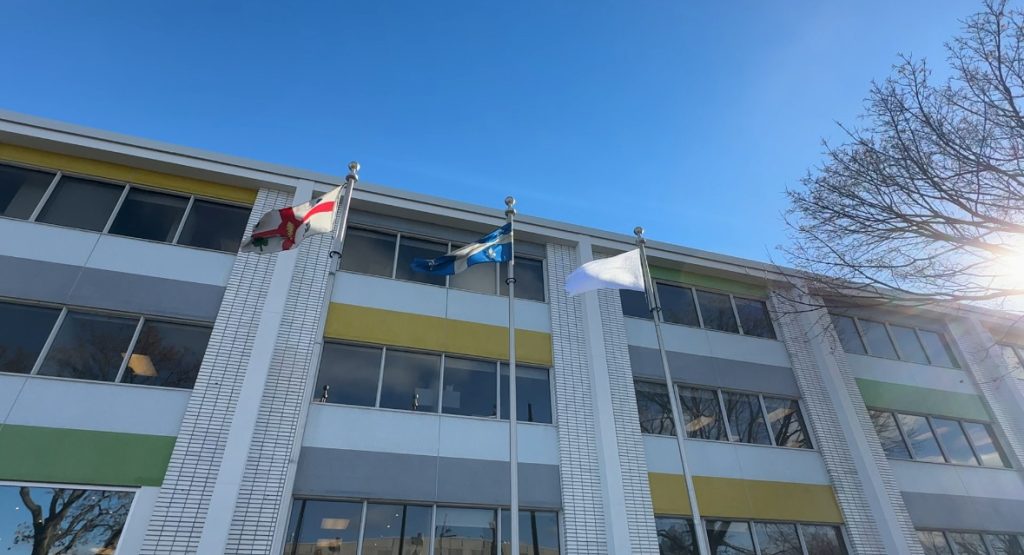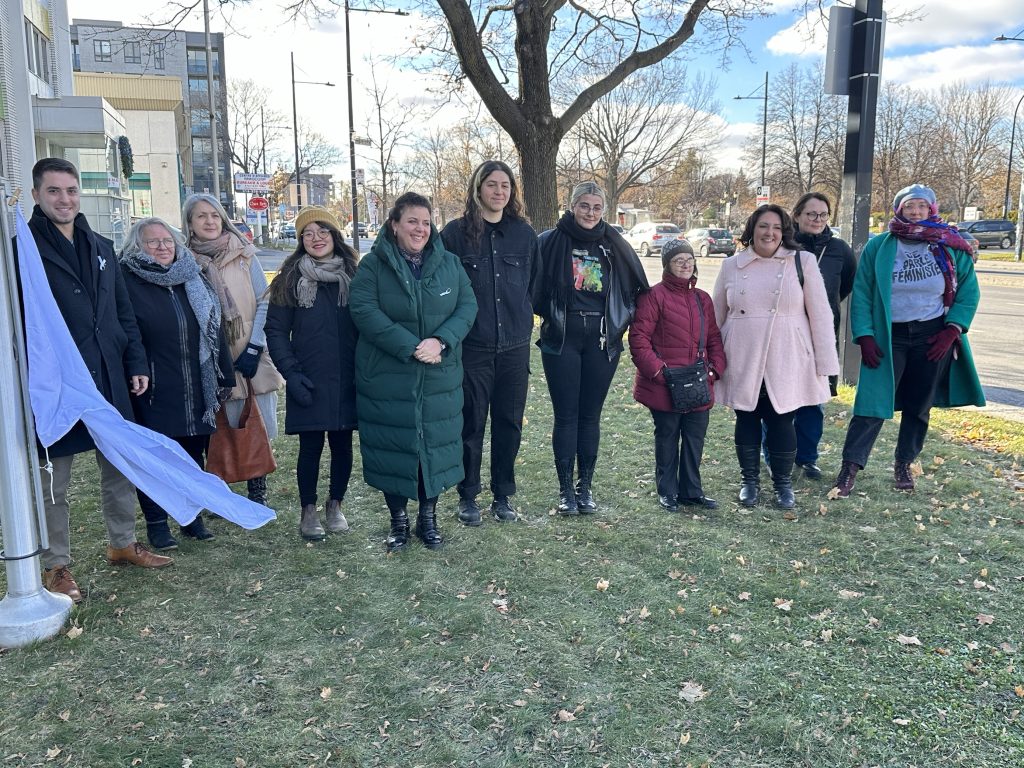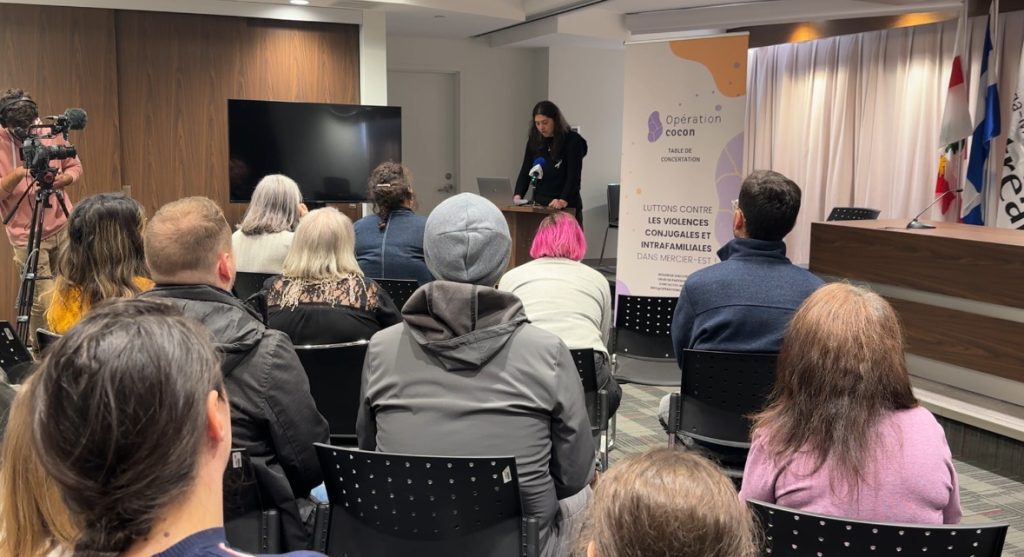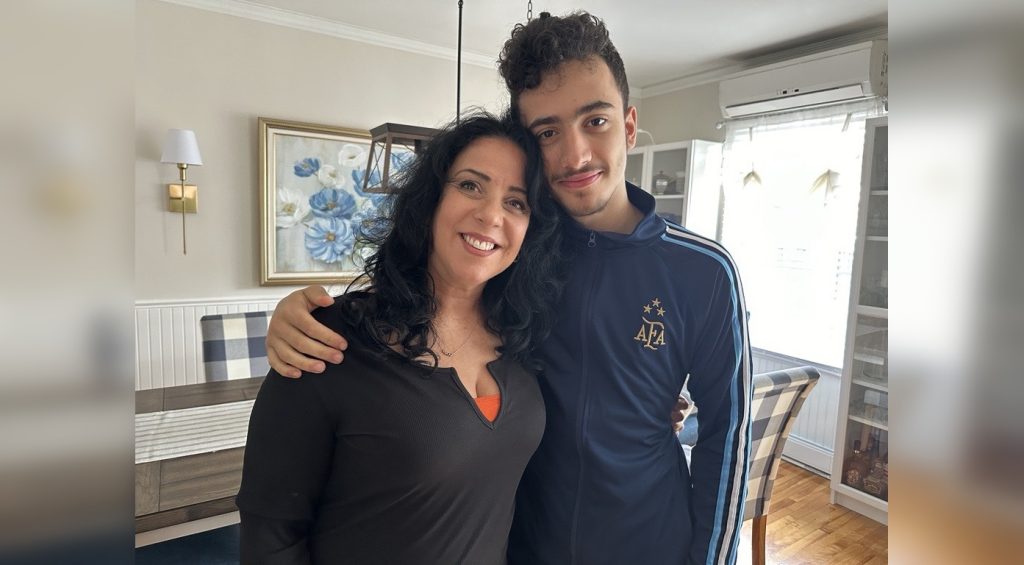12 days of action to fight violence against women, leading up to Dec. 6 Polytechnique anniversary
Posted November 24, 2023 3:13 pm.
Last Updated November 24, 2023 7:02 pm.
As the anniversary of the Dec. 6, 1989 Polytechnique massacre approaches – when 14 women were murdered at the l’École Polytechnique in Montreal – a white flag was raised at the Mercier-Hochelaga-Maisonneuve’s borough hall Friday to honour victims of gender-based violence.
The event was put on by Opération Cocon – a concertation table created by Info-Femmes – to kick off the 12 days to fight violence against women initiative organized by the Concertation des luttes contre l’exploitation sexuelle (CLES), taking place from Nov. 25 to Dec. 6.
“It’s the first time ever in Montreal that we’re raising the white flag to start the 12 days of action against violence against women. Here in the east side of Montreal, we know there has been a lot of violence against women, all types of violence,” said Alia Hassan-Cournol, a city councillor in Mercier–Hochelaga-Maisonneuve.


Women and girls make up the majority of victims of violence, whether it be domestic violence, harassment, sexual assault or other forms of abuse.
According to Info-Femmes, in Canada, a woman or girl is killed every two days, and men account for the majority of those charged. In Quebec, 14 feminicides were recorded in 2022.
“Unfortunately, in 2023, there are still many women who are victim of domestic violence or intimate partner violence. Too many women die from this violence. From 2019 to 2022, there was a 20 per cent increase in feminicides. So it’s not something that’s going away, it’s not getting better, it’s getting worse,” said Linda Basque, from Info-Femmes.
There are also contexts of heightened vulnerability to gender-based violence – such as people from diverse sexual and gender backgrounds, Indigenous women, immigrants, women living in poverty, women with disabilities and more.
“Operation Cocoon is there to help network all the different professionals who might come into contact with victims, also to put the victims at the center of the work that we do because they’re the ones who know best what is helpful,” said Basque.
“Socially it’s been very hard for a lot of people in terms of vulnerabilities and the first people that are targeted are always women. We need the proper levels of government to put money where it makes sense. Education, more means and resources for those organizations helping the victims,” Hassan-Cournol added.
The event is also meant to highlight solutions, including working hand in hand to create support nets for victims and sharing best practices, the group says.
“There are resources, there’s women’s shelters, there’s women’s centers. Often we’re overlooked, but women’s centers are an essential part of the network of resources to help victims of intimate partner violence. Do not be afraid to call out for help, to turn towards these resources,” Basque said.


As well as rethinking the resources allocated to organizations, so that they can respond to the many issues associated with gender-based violence.
“Another very important factor is prevention. We have to be able to recognize that certain behaviors are signs of domestic violence, to be able to work with children, to teach them how to have a healthy relationship. It’s a network of tools and resources that are necessary to be able to help support and protect women and their children,” Basque added.
Hassan-Cournol saying, “the government needs to invest where it makes sense, meaning social housing. Because as we see it, a lot of vulnerability comes from the lack of housing, social housing, affordable housing, and transitory housing.”
Info-Femmes hopes the flag-raising event will continue yearly as a symbol of support for victims of gender-based violence.
“Intimate partner violence is a problem that affects everybody in our society. There’s the victims, there are their children, there’s most often men who are perpetrators of violence, but as a society we have to really address this problem and try and find solutions to eventually eradicate intimate partner violence,” Basque concluded.



